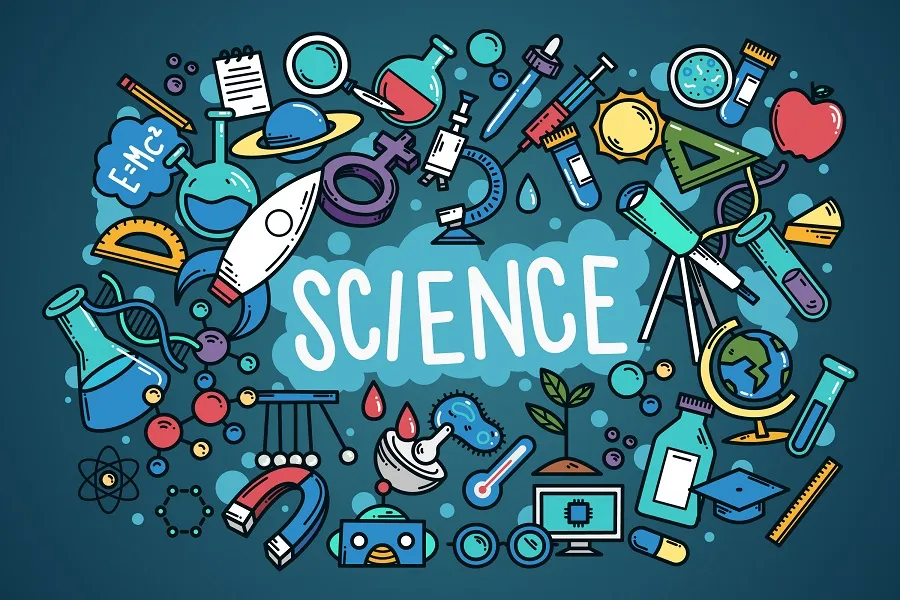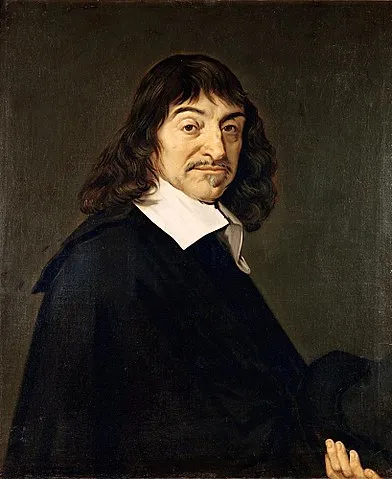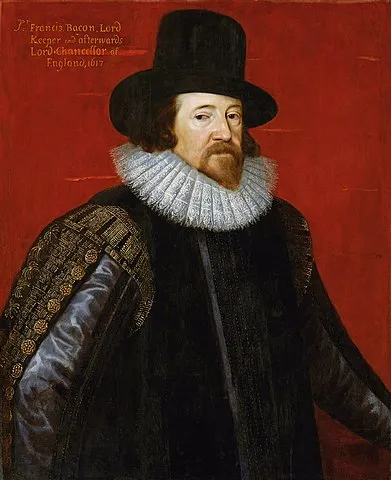El impulso a la ciencia de Bacon y Descartes


Tanto Francis Bacon (1561-1626), fuerte nombre del empirismo, como René Descartes (1596-1650), fuerte nombre del racionalismo, estaban molestos o decepcionados, ciertamente insatisfechos, con el tipo de educación formal que habían recibido. Ambos estaban molestos con la preeminencia de la teología en las universidades y con el recurrir a los textos antiguos cristianos y de la filosofía griega platónica-aristotélica como fuentes del saber máximo.

https://commons.wikimedia.org/wiki/File:Frans_Hals_-_Portret_van_Ren%C3%A9_Descartes.jpg
Descartes, quien dudaba sobre si publicar o no sus ideas –por riesgos religiosos y porque él estimaba en alto grado la tranquilidad, cosa que perdería si sus escritos se hacían famosos–, encuentra que como cree haber descubierto nociones de física útiles para el prójimo
([Discurso del Método] “en lugar de esa filosofía especulativa que se enseña en las escuelas, puede encontrarse una práctica, por la cual, [...] convertirnos así en dueños y señores de la Naturaleza”),haciendo hincapié en las posibles invenciones o descubrimientos relacionados a la conservación de la salud, debe publicar. Bacon, por su parte, advocaba crear una gran enciclopedia de todos los conocimientos sobre la naturaleza para que sirviera para la creación de nuevos inventos o mejoras de modo general (por ejemplo, recipientes de vidrio difícil de romper para la conservación de alimentos). Así, ambos querían que la educación se centrara en la mejora de las condiciones de vida humana mediante el entendimiento de la naturaleza.
Descartes pensaba que había sido educado en una de las mejores escuelas y que, por las opiniones de los demás sobre él, tenía por lo menos una inteligencia media y buena, y se había dedicado con mucho interés al estudio de las letras porque le habían asegurado que así se obtendría
[Discurso…]"un conocimiento claro y seguro de todo lo que es útil para la vida"
Sin embargo, al terminar sus estudios formales estaba decepcionado porque estaba más confundido que otra cosa, aun reconociendo que había aprendido mucho:
[Discurso…]“No dejaba, empero, de estimar los ejercicios que se practican en las escuelas
porque entre las ciencias que había estudiado estaban aquellas asentadas en la filosofía, pero en ella no había nada seguro, por ende dichas ciencias estaban asentadas en arena. Así, en su árbol metafórico de la sabiduría, expresado en Los principios de la filosofía, Descartes postuló que las raíces eran la metafísica, y a esta ciencia le dedicó con más detalle que en el Discurso sus Meditaciones metafísicas; al tronco, hecho de la física o filosofía natural, le dedicó parte del Discurso y dos de los tres ensayos a los que este sirve como un prólogo, además, aunque sin publicar en vida, de El mundo o Tratado de la luz (y las ramas del árbol compondrían las demás ciencias, de las cuales las principales serían la mecánica, la medicina y la moral).
Entonces, Descartes trató de cambiar aquello que lo había decepcionado, la educación formal y aquello en lo que se asentaba, haciendo un texto en el que su pensamiento estaba sistematizado y resumido para ser utilizado como libro de texto o manual universitario, el llamado Principios de filosofía. Decepcionantemente para él, el libro tuvo poco o ningún éxito a pesar de las ardientes discusiones y debates que su obra previa ya había desatado. Por lo tanto, no logró ver el máximo impacto de sus obras en la educación y la filosofía con su inauguración del racionalismo como corriente.

https://en.wikipedia.org/wiki/File:Somer_Francis_Bacon.jpg
Francis Bacon fue un hombre ocupado en mejorar la calidad de vida de las personas mediante la aplicación práctica de la ciencia, una ciencia operativa –del modo que modernamente podríamos llamar ciencia aplicada o tecnociencia–, y esto no es menor para su época, pues él estaba en profundo desacuerdo con que en las universidades (él estudió dos años en el Trinity College de Cambridge, tras lo cual se fue al Gray’s Inn, una facultad de leyes) se enseñaran cosas de alto nivel abstracto sin buscarle aplicación a solucionar problemas tangibles, aun cuando reconocía cosas de valor en el pensamiento de la Antigüedad. Dice que leer sólo por curiosidad o para participar de debates estériles por debatir en sí mismo es algo por erradicar en pos de establecer el comercio de la mente con las cosas, esto es, que la instrucción obtenida de los libros y profesores es necesaria pero no definitiva, sino que posteriormente el sujeto debe observar y experimentar para obtener una sabiduría más profunda, pero también atacaba la alquimia con ímpetu por considerarla un fraude debido a su secretismo y porque esta seguía un método erróneo de aproximación a la naturaleza.
Así, esgrimía que ni la pólvora, ni la imprenta, ni la brújula habían sido frutos de debates universitarios. Consecuentemente, advocó que debía realizarse una gran restauración: que los científicos debían dedicarse a solucionar los problemas tangibles de la humanidad en un esfuerzo colectivo e intergeneracional de características enciclopédicas, recabando información sobre la naturaleza sistemáticamente para controlarla. Es de notar que él veía esto como la continuación que le correspondía a los humanos de la obra creadora de Dios, como se muestra en su obra utópica Nueva Atlántida, donde esta ciudad dedicada a la ciencia y tecnología tiene un fuerte sentimiento religioso, pues no veía incompatibilidad entre religión y ciencia, aunque sí reclamaba que la Biblia no fuera la fuente final de autoridad en materia de ciencia, y además, que el avance de la técnica tuviera un fuerte apoyo político.
Por otro lado, aunque Bacon, como empirista, priorizaba los sentidos como la fuente del conocimiento, no pensaba que los humanos tuvieran la mente en blanco para recibir los impulsos del exterior recabados por los sentidos, sino que las personas tienen tendencias (las llamó ídolos, aunque de estos calificó tanto naturales como adquiridos) de las que es necesario deshacerse y estar precavidos para avanzar en el estudio de la naturaleza; e.g., la predisposición a encontrar orden y regularidad (apofenia), lo que puede llevar a proyectar estas en la realidad desde la mente donde no la hay en la realidad.
Así, definiendo la ciencia operativa: filosofía abierta a nuevas metas técnicas y prácticas. Observando la naturaleza, se definen axiomas o leyes generales que expliquen los fenómenos; con estos axiomas, se plantean experimentos para confirmarlos, pero manteniendo las posibilidades abiertas a refutación por experimentos o por otras ideas. Conociendo la naturaleza, el hombre puede controlarla y mejorar así sus condiciones de vida.
The impulse to science of Bacon and Descartes
Both Bacon, a strong name for empiricism, and Descartes, a strong name for rationalism, were annoyed or disappointed, indeed dissatisfied, with the kind of formal education they had received. Both were annoyed with the preeminence of theology in the universities and with the recourse to ancient Christian texts and to Platonic-Aristotelian Greek philosophy as sources of ultimate knowledge.
Descartes, who hesitated about whether or not to publish his ideas - because of religious risks and because he held tranquility in high esteem, something he would lose if his writings became famous - finds that since he believes he has discovered notions of physics useful to his fellow man ([Discourse on Method] "he has discovered notions of physics useful to his fellow man. part six, p 73] "instead of that speculative philosophy which is taught in schools, a practical one may be found, by which, [...] we may thus become masters and lords of Nature"), emphasizing possible inventions or discoveries related to the preservation of health, he should publish. Bacon, for his part, advocated the creation of a great encyclopedia of all knowledge about nature to serve for the creation of new inventions or improvements in general (for example, glass containers difficult to break for food preservation). Thus, both wanted education to focus on improving human living conditions by understanding nature.
Descartes thought that he had been educated in one of the best schools and that, from the opinions of others about him, he was at least of average and good intelligence, and had devoted himself with great interest to the study of letters because he had been assured that he would thus obtain [Discourse...]"a clear and sure knowledge of all that is useful for life." However, when he finished his formal studies he was disappointed because he was more confused than anything else -even recognizing that he had learned a lot: [Discourse...]"I did not fail, however, to appreciate the exercises that are practiced in schools"-, because among the sciences he had studied were those based on philosophy, but in philosophy there was nothing certain, therefore these sciences were based on sand. Thus, in his metaphorical tree of wisdom, expressed in The Principles of Philosophy Descartes postulated that the roots were metaphysics, and to this science he dedicated in more detail than in the Discourse his Metaphysical Meditations; to the trunk, made of physics or natural philosophy, he devoted part of the Discourse and two of the three essays to which it serves as a prologue, plus, though unpublished during his lifetime, The World or Treatise on Light (and the branches of the tree would compose the other sciences, of which the main ones would be mechanics, medicine and morals).
Then, Descartes tried to change that which had disappointed him, formal education and that in which he settled, making a text in which his thought was systematized and summarized to be used as a textbook or university manual, called Principles of Philosophy. Disappointingly for him, the book met with little or no success despite the fiery discussions and debates that his previous work had already unleashed. Thus, he failed to see the full impact of his works on education and philosophy with his inauguration of rationalism as a current.
Francis Bacon was a man concerned with improving the quality of people's lives through the practical application of science, a working science - in the way that we might modernly call applied science or technoscience - and this is no small thing for his time, for he profoundly disagreed with universities (he studied for two years at Trinity College, Cambridge, after which he went to Gray's Inn, a law school) teaching things at a high abstract level without seeking application to solving tangible problems, even though he recognized things of value in the thought of antiquity. He says that reading only for curiosity or to participate in sterile debates for debating in itself is something to be eradicated in order to establish the trade of the mind with things, that is, that the instruction obtained from books and teachers is necessary but not definitive, but later the subject must observe and experiment to obtain a deeper wisdom, but he also attacked alchemy with impetus for considering it a fraud due to its secrecy and because it followed an erroneous method of approaching nature.
Thus, he argued that neither gunpowder, nor the printing press, nor the compass had been the fruit of university debates. Consequently, he advocated that a great restoration should be carried out: that scientists should dedicate themselves to solving the tangible problems of humanity in a collective and intergenerational effort of encyclopedic characteristics, gathering information over nature systematically to control it. It is noteworthy that he saw this as the continuation that corresponded to humans of the creative work of God, as shown in his utopian work New Atlantis, where this city dedicated to science and technology has a strong religious sentiment, as he did not see incompatibility between religion and science, although he did claim that the Bible was not the final source of authority in science, and furthermore, that the advance of technology had strong political support.
On the other hand, although Bacon, as an empiricist, prioritized the senses as the source of knowledge, he did not think that humans had a blank mind to receive the impulses from outside gathered by the senses, but that people have tendencies (he called them idols, although he qualified these as both natural and acquired) which it is necessary to get rid of and be cautious of in order to advance in the study of nature; e.g., the predisposition to find order and regularity (apophenia), which can lead to projecting these into reality from the mind where there is none in reality.
Definition of working/operational science: philosophy open to new technical and practical goals. Observing nature, axioms or general laws are defined to explain the phenomena; with these axioms, experiments are proposed to confirm them, but keeping the possibilities open to refutation by experiments or by other ideas. By knowing nature, man can control it and thus improve his living conditions.
Bibligrafía: The Works of Francis Bacon, Volume 1 — Miscellaneous Tracts: Mr. Bacon in Praise of Knowledge Francis Bacon 1884 Exported from Wikisource on February 24, 2021
The Essays of Francis Bacon [1, 17, 24, 38, 39, 40, 50] Francis Bacon 1908 Exported from Wikisource on February 24, 2021
Popular Science Monthly Volume 69 October 1906 — Francis Bacon and the Modern University B Professor Edward O. Sisson (University of Washington, Seattle) 1906 Exported from Wikisource on March 1, 2021
Félix González Romero: Francis Bacon; RBA Contenidos Editoriales y Audiovisuales
René Descartes: Discurso del Método; Trad. de Ediciones Folio por Antonio Rodríguez Huéscar;
Luis Arenas: Descartes; RBA Contenidos Editoriales y Audiovisuales